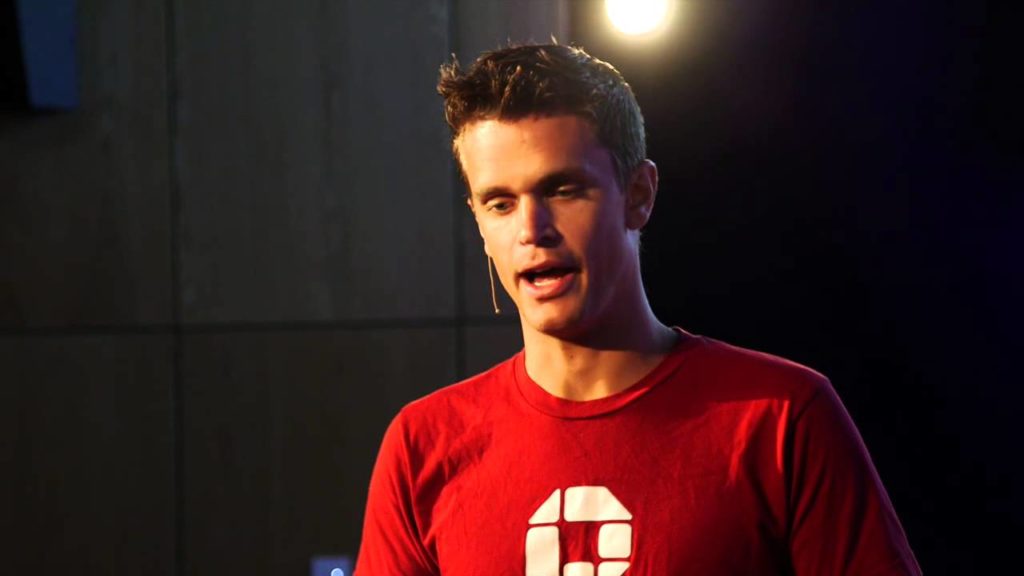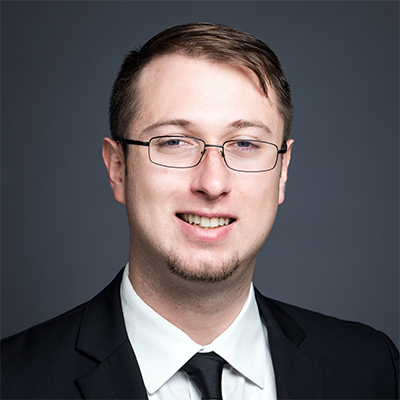If you missed the Reddit AMA with Isaac Morehouse last week, fear not! We’ve taken the liberty of compiling some of the highlights for your viewing pleasure. You can check out the whole thing here. Isaac is a prolific author and speaker on a range of subjects including education, entrepreneurship, economics, and philosophy—and founder of Praxis.
pack1502:
Hey Isaac, we actually met a couple years ago at a Milton Friedman Legacy Day event in North Carolina when I was an intern at a think tank. You had a very interesting talk on competition and how it makes education better.
Could you talk a little bit about how your political/social philosophy developed?
isaacmorehouse:
Thanks for the question. I think I recall chatting over buttered rolls.
My own philosophical journey has been pretty long and winding. It’s hard to summarize. My bookshelves are actually arranged to reflect this journey, and I kind of want to say, “You have to come over and read through it all in order.” But I won’t. 😉
Around age 16 I started reading. I hated it prior to that. I read “The Great Divorce” by C.S. Lewis and for some reason it just made me hungry for ideas and fascinated with the question of free will.
That led me to political philosophy, economics, and I wanted to make the world a freer place. I tried politics (total waste that makes you a worse version of yourself), policy, education, and eventually my intellectual and practical experience led me to believe that creating a better world is best done through demonstration (not rallies demonstration, but “show”, not “tell”). Criticize by creating.
Public Choice Theory was a big part of this process too.
Anyway, innovating around oppression and helping people live free is what I’m all about!
heythisis-myusername:
Who are some of your intellectual influences?
isaacmorehouse:
Oh boy. Top of the head will be totally skewed and leave out several I’m sure. I prefer books to people, as I don’t always know someone’s entire body of work. A few influential books for me, in no particular order:
Principles of Economics, by Carl Menger
What is Seen and What is Unseen, by Frederic Bastiat
Outwitting the Devil, by Napolean Hill
How I Found Freedom in an Unfree World, by Harry Browne
Finite and Infinite Games, by James P. Carse
Anything by C.S. Lewis
Anything by Mark Twain, especially short stories
Zero to One, by Peter Theil
A Treatise on Political Economy, by Jean-Baptiste Say
Anything by Ludwig von Mises
The Fabric of the Cosmos, by Brian Greene
Anarchy Unbound, by Peter T. Leeson
A Timeless Way of Building, by Christopher Alexander
Free to Learn, by Peter Gray
major1330:
What is Praxis? Explain it to me like I’m 5.
isaacmorehouse:
A cool nine month experience.
You spend 3 months in a professional bootcamp where you build a personal brand and create some tangible evidence of your skill.
Then you work with a placement specialist to match you with a growing startup for a paid apprenticeship for 6 months.
You also get one on one coaching, group discussions, a network of peers, and a flexible curriculum along the way.
When you’re done, you have a full time job offer.
WhyWyoming:
Where do you see college going in five years? Ten years?
What kind of jobs do Praxis grads wind up with, after ending the program? Can you share how much they might earn?
And what do you say to 18 year olds who are graduating high school and thinking about going to college?
Keep up the awesome work! I used to be in SFL and ran into you guys once or twice 🙂
isaacmorehouse:
I hope it didn’t hurt when you ran into us! (Dad jokes never get old)
Five years maybe not a lot noticeable from the outside. Ten years I suspect a lot of the middle of the road generic type schools will be having some serious financial issues, while really cheap community colleges and online schools and also very prestige-based institutions will probably have some uptick, and of course massive growth in total alternatives and people building their own credential. (20 years probably a very different story for colleges)
The second question is tough, because there’s not much I’d say to the group “all 18 year olds graduating”. I think trying to tell all young people what they should do is part of the problem. Depends on their goals and interests.
First, get in touch with those. This will take experimentation.
Second, make sure the burden of proof is equal for college and alternatives to it. The default should not be “college is a good idea until proven guilty”. That seems as dumb as “pickup trucks are a good idea for all young people unless you can definitively prove otherwise.”
…
Oh! Forgot the other question. Sorry.
Grads end up working at growing startups in roles like sales, marketing, and operations. Average starting salary after Praxis is just over $50k, and 75% of grads have no college degree.
baggytheo:
Hey Isaac,
Why do you think there is so much badmouthing/backlash against alternatives to both K-12 public education and the typical higher education track?
If Praxis was around when I was younger, I would have loved an option like that, but even then I would have expected a lot of haranguing from teachers/family about how I’m “wasting my potential” by not spending 4 years and 100k or more sitting around to earn a bachelor’s degree. Are things changing? Do you see as much of that kind of stuff with your current college opt-out candidates?
isaacmorehouse:
Yeah, Praxis applicants single greatest obstacle is their (well-meaning) parents.
It’s scary for parents, because most of them have made getting into a good school the entirety of their measure of being a successful parent. Deep down what they really want is for their kid to be happy, but they don’t have any image of that that doesn’t include college.
Often past definitions of success shackle people and inhibit their present and future growth.
And many parents are rightly concerned that without structure being imposed on them by some external authority, their kids will just eat Cheeto’s all day. School has made it very hard for young people to create their own structure and develop a healthy relationship to learning.
We find we have to often “deschool” our participants a bit and help them break free of the permission-seeking/authoritarian mindset and become independent learners and value creators.
baggytheo:
So where do you stand on charter schools and the new wave of low-cost private schools that aim to innovate and maximize efficiency within the traditional schooling model? Do you think that traditional schooling can work well for some kids? Or is everyone better off as a homeschooled or unschooled autodidact? (Setting aside the question of what options are realistic for any given family.)
isaacmorehouse:
I’m for as much choice and as many options as possible. The closer to a market, the better.
Charter schools are a little closer to an actual market than the current system, and thereby are an improvement.
Long way to go!
cagrimm3tt:
You seem to have a lot of plates in the air and you are a high performing individual. On the days where you are sluggish, unmotivated, or just plain not getting as much done as you want, how do you break yourself out of that and get back in the game?
isaacmorehouse:
Whew. Good question. I hope this answer doesn’t sound too flippant or heretical (or make my team at Praxis get mad at me!), but here’s the best thing I’ve found so far…
Let it happen.
If I’m having a really unfocused day, I try to not feel guilt over it or judge myself. I just treat it like a neutral fact and try to work around it. If I feel guilt and try to force myself to do focus work, it will just be poor quality anyway. I free myself from that and try to work with my natural rhythms whenever possible.
There are three kinds of days for top performers: game day, practice, and off days. Game day gets 80% of the results. Practice makes game day possible. Off days make both possible. All matter. If it’s an off day, make it an Off Day!
Prez11:
Hey Isaac, thanks for doing this!
Can you please talk more about what it is like unschooling? Specifically, is there ANY structure? Do you start with some basics (like reading, writing, basic math) and then set them free to pursue their own interests, or was it just let them be and support them in whatever they were interested in from the get go? Or something totally different?
Thanks!
isaacmorehouse:
Great question. I was asking the same thing of a lot of unschoolers when it first began to make sense to me. I was dragged kicking and screaming to it, so to speak.
We started off homeschooling. Curricula, structure, daily schedule imposed on our kids. They hated it, we hated it, no one was learning and no one was happy.
Work by John Holt, Daniel Greenberg, Peter Gray, John Taylor Gatto, Alfie Kohn, and Martin Seligman kept pushing me further and further towards freedom.
Finally we just tried it. We stopped trying to teach my son to read, or really anything else. We have some agreements about chores he has to do, and some screen-time limits or bargains, but otherwise it’s pretty wide open.
What’s amazing is that humans are naturally curious and hungry to learn. They have every incentive to do so in a society that rewards it. We don’t need force. When they’re interested and motivated, they can learn in days what you could try to force into their brains for weeks.
****Mysticism:
Hi Mr. Morehouse. Would you rather hire 1 college graduate-sized duck or 100 duck-sized college graduates?
isaacmorehouse:
This is an amazing question. For a minute I was worried that I wasted my time by listening to the 8 Mile soundtrack on repeat prior to this AMA. Now I know it was the right call.
I’d take the duck. Could feed my family for weeks if their performance on the job went south!
kerouacrimbaud:



